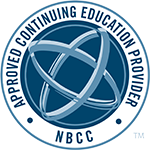Recorded Webinar
Instructor: Davey Shlasko, M.Ed.
CEs/Contact Hours: 2
Level: Intermediate
Target Audience: Social workers and other social service providers.
Course Delivery Method and Format: Recorded webinar, self study. All courses are hosted on SmithOnline. Login information will be emailed immediately after registration to the email address entered during registration.
System Requirements: Attendees will need access to a computer with internet and the capability to play recorded videos.
Date of original webinar: December 1, 2021, noon - 2 p.m. ET
The understanding of gender identity continues to evolve at a fast pace with growing diversity and nuance. In spite of increasing acceptance of transgender identities, trans community members still face intense stigma, violence and barriers to participation. Many service providers have good intentions about trans inclusion; with a deeper understanding and expanded toolbox, they can build on those intentions to create truly trans-inclusive practices. This course explores the impacts of the current binary gender system and its relationship to histories of colonization and examines key terminology and concepts for understanding trans identities, as well as barriers, risks and resilience factors common in trans communities. The course provides examples of trans-inclusive practices, practice applying them and an opportunity to ask questions about real world scenarios. Participants will leave this course with a foundation for integrating trans-inclusive and -affirming practices into your work.
Please note: Back by popular demand! This course was previously run as a webinar called Foundations for Trans Inclusive Practice in 2019 and the recording was available as an online course. If you have already taken it, much of the content will be similar.
Registration Fees and Deadlines:
$45 (one time registration fee of $5) | Ongoing
Learning Objectives:
- Articulate key terminology and concepts for understanding trans identities
- Discover a diversity of trans identities and experiences, including those who identify as transsexual, transgender, nonbinary and gender-nonconforming.
- Identify how factors like race, class and sexuality intersect with trans identity
- Explain barriers, risks, and resilience factors common among trans community members
- Demonstrate basic trans-competent behaviors relevant to social service settings, such as inquiring respectfully about pronouns and gender identity
- Describe the role of the binary gender system in colonization and its implications for current intersectional understanding of gender diversity
Outline: 2 hours
- Introduction & framing
- Why this Matters- Barriers, risks and resilience factors, allyship
- Binary Gender System and Colonization
- Terms and Concepts
- Introducing inclusive practices in three areas: Communication and relationships | Program/practice content | Policies/structures
- Practicing inclusive practices (focusing on interpersonal level), e.g.:
- Appropriately asking about gender identity and pronouns
- Recovering from pronoun mistakes
- Affirming and respecting trans identities while inquiring about distress, barriers, or discrimination
- Affirming and respecting trans identities while collecting demographic info
- Q&A
- Closing
About the Instructor:
Davey Shlasko, M.Ed. is the founder and director of Think Again Training & Consulting, an organization that helps organizations implement social justice practices in areas like gender diversity, LGB and trans inclusion, racial & economic inequality, coalition building and allyship. Shlasko has contributed to several editions of Teaching for Diversity and Social Justice and Readings for Diversity and Social Justice, and also authored Trans Allyship Workbook. Shlasko teaches social theory and trans studies in Smith’s M.S.W. program.
To receive a CE certificate, you must complete the entirety of the recorded webinar or recorded video presentation. Partial credit will not be awarded to those who attend only a portion of the class. For recorded webinars and online courses, participants must complete an evaluation and a post test, noting the length of time to complete the course. Participants must earn a minimum score of 80 percent on the post test in order to earn CEs. Retesting is allowed up to five (5) times. If a passing score is not achieved, CEs will not be awarded. Links to the evaluation and post test are available in SmithOnline. Participants must also complete an attestation of completion for each fully completed course. A copy of the attestation is available in SmithOnline. It is attendee’s responsibility to contact their state licensing board/certification boards to determine eligibility to meet continuing education requirements.
Upon completing the course evaluation, successfully passing the post test and submitting the attestation, participants will be emailed their online certificate within 30 days of course completion. Participants should save and/or print the certificate upon receipt for their records. Receiving the CE certificate is contingent on submitting attestion, completion of the evaluation and passing the post test.
Continuing Education Credits and Approvals for This Course
Continuing Education (CE) credits offered vary by course. This course only offers the CE credits listed below. It is the attendees' responsibility to contact their licensing board to determine eligibility to meet continuing education requirements.
CSWE
Smith College School for Social Work is accredited by the Council on Social Work Education and is therefore authorized to provide CEs as a postsecondary institution accredited by CSWE in many states. Courses offered through the School’s Program of Professional Education are awarded continuing education credits in accordance with Continuing Education Regulation 258, CMR, 31.00 in the Commonwealth of Massachusetts.
NY State
Smith College School for Social Work is recognized by the New York State Education Department's State Board for Social Work as an approved provider of continuing education for licensed social workers #SW-0169.
Approved for Counselors (LMHC/LPC)

Smith College School for Social Work has been approved by NBCC as an Approved Continuing Education Provider, ACEP No. 7110. Programs that do not qualify for NBCC credit are clearly identified. Smith College School for Social Work is solely responsible for all aspects of the programs. This program offers 2 contact hours.
